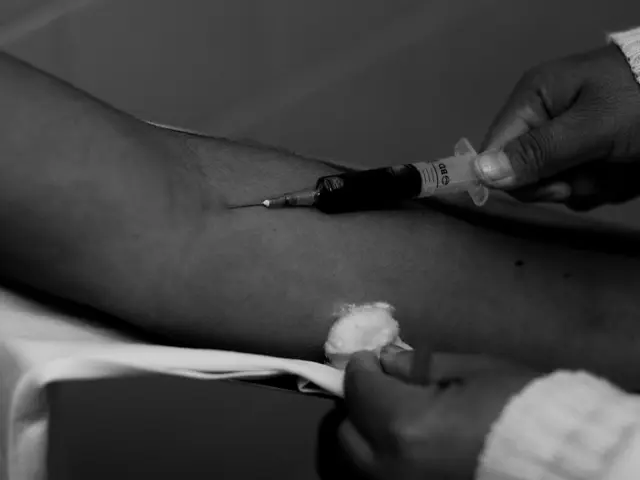Scholars introduces platform for evaluating and minimizing anxiety levels
Revamped Write-up
Hey there! Let's dive into something interesting – the PrevAns project, a groundbreaking digital venture spearheaded by researchers hailing from Porto and Málaga, Spain. This project is all about offering a universal access point for a proactive, personalized approach to managing anxiety, potentially easing the pressure on overburdened healthcare services.
The PrevAns project team strives to enlist 1,000 people at risk of anxiety disorders by March 2026, as explained by Filipa Salomée, a psychologist from the Faculty of Psychology and Education Sciences of the University of Porto (FPCEUP).
Aiming for Anxiety Prevention
You might be wondering, "Why the focus on anxiety, and why now?" Well, the answer lies in its widespread reach: anxiety disorders affect about one fifth of the Portuguese population, with approximately 23% of students from six Portuguese universities battling mental illness.
The team is intent on "nipping anxiety in the bud" before it starts negatively affecting people's daily lives. Their primary goal is to assess whether a personalized intervention, backed by a risk algorithm and made feasible through technology, can effectively prevent anxiety and its influence on public health.
The Role of Technology and Risk Algorithm
Here's where it gets exciting! The project uses a risk algorithm to identify individuals eligible for the study and access to prevention strategies. Those falling into the intervention group receive access to information modules, exercises, or (in more severe cases) cognitive-behavioral intervention.
Meanwhile, participants can share their experiences on a community forum and, when needed, be referred to free or low-cost support services.
A team of specialists including family medicine, psychiatry, psychology, statistics, epidemiology, informatics, and design work together on this project, ensuring that it's rooted in scientific evidence.
Exploring the Potential Impact
The PrevAns project aims to address the void in digital interventions for anxiety prevention within Europe. By making these tools accessible and user-friendly, this initiative allows individuals to better manage emotions, alter behavioral patterns, increase self-awareness, and reduce the reluctance to seek psychological support. In turn, this not only benefits the individuals themselves but also works towards lightening the overall burden of anxiety disorders on the healthcare system.
Although the PrevAns project is independent of María José Torres Jaén's presidency of the European Academy of Allergy and Clinical Immunology (EAACI), it mirrors the broader wave of innovative healthcare projects in Spain that focus on mental and physical health interventions using technology and evidence-based practices.
- The PrevAns project, focused on anxiety prevention, is rooted in science as it employs a team of specialists including psychology, statistics, epidemiology, informatics, and design.
- This groundbreaking digital venture in health-and-wellness and mental-health aims to offer a personalized approach, using technology, to proactively manage anxiety, benefiting not only individuals but also the overburdened healthcare system.







